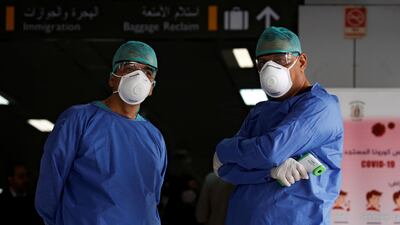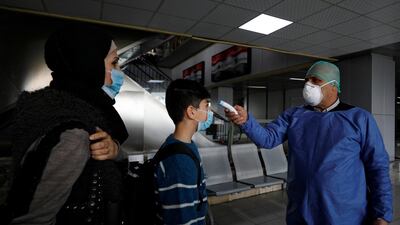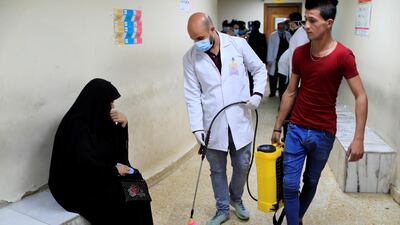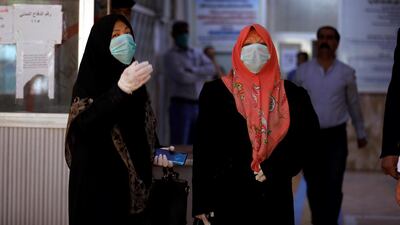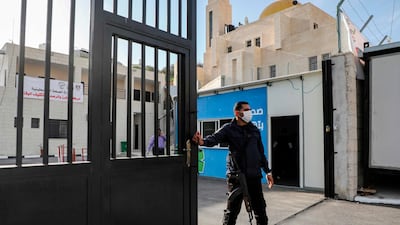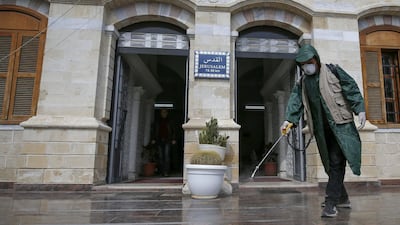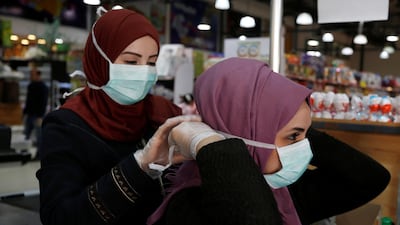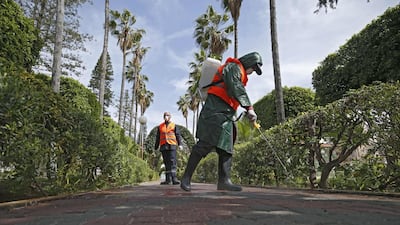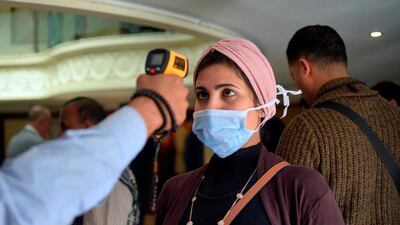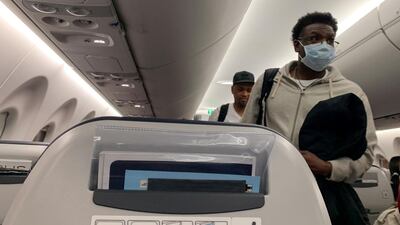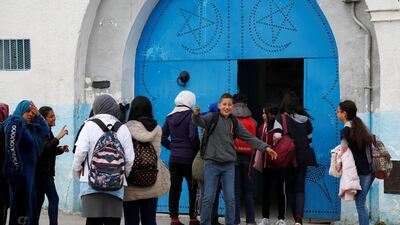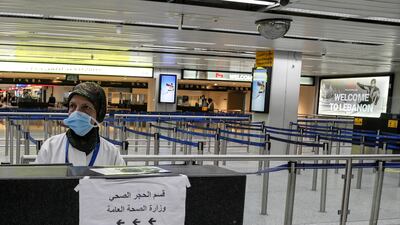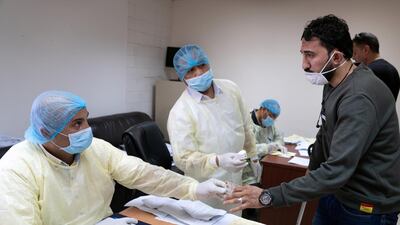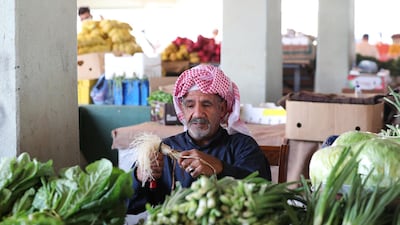Syrian authorities are ignoring the severity of the coronavirus threat, doctors and aid workers said on Tuesday, as the disease spreads in neighbouring countries, where militias and troops cross from to support President Bashar Al Assad.
The epidemic is a sensitive issue in areas controlled by the regime, which is wary that no cases be linked to its allies.
Regime areas are home to tens of thousands of Shiite militiamen from Iraq, Lebanon, Pakistan and Afghanistan – all countries with confirmed cases of the virus, as well as Iran’s Revolutionary Guard Corps. Shiite pilgrims from these countries have also been coming to Damascus.
While official media is stressing that the virus has not reached Syria, a spokesman for Pakistan’s Health Ministry told local media on Monday that six people who arrived from Syria via Doha had tested positive, raising the number of coronavirus cases in Pakistan by one-third.
The spokesman, Meeran Yousuf, did not reveal the nationality of the six or what they were doing in Syria.
Pilgrims, mainly from Iraq and Iran, but also Pakistan have continued visiting Saida Zainab and other holy sites in Damascus, buoyed by the presence of co-religionist militias around them.
The Assad government on Monday discouraged such visits, announcing a suspension of all non-Syrian arrivals from Iraq. A simultaneous ban came into effect for countries that have declared they are in “a state of epidemic”. But there were at least two flights arriving from Baghdad and Najaf on Tuesday, according to the Damascus airport website.
The head of a large hospital in Damascus recanted statements he made last month that the hospital was treating two suspected cases, before indicating this week that there could still be at least one case at the hospital.
Ahmad Al Khatib, head of Al Mujtahid hospital, told state television that any talk of coronavirus cases in Syria were rumours aimed at undermining the regime. He later said that one patient has been isolated at the hospital as a suspected coronavirus case.
“We have no interest in hiding any case,” Mr Al Khatib told the loyalist Sham FM radio.
One doctor contacted by The National at a regime hospital in central Syria said there had been an apparent rise in respiratory illness cases and deaths in the past month.
“We do not have advanced detection tools. Whether coronavirus is causing the organ failures we are seeing cannot be known for sure,” the doctor said.
Another Syrian doctor working in the Arabian Gulf who still travels to Damascus said even if cases can be confirmed, no one dares to talk about them because they would likely be transmitted by the militiamen on whom Assad depends.
“The regime is acting like Iraq, which hid its cases so as not to offend Iran but had eventually to admit them because they became too many to conceal,” the doctor said.
The World Health Organisation in Geneva did not reply to The National's request for comment on the virus situation in Syria.
Even before the 2011 revolt against Assad family rule, Syria’s public healthcare system was regarded as corrupt.
Patients had to bribe doctors and nurses for care at most government hospitals and medical supplies were stolen so that patients at times had to bring their own bandages, an executive at an international conglomerate that had donated medical supplies to the government in the 2000s said.
Damascus residents for decades regarded Al Mujtahid hospital as so inadequate that it was known as “the butchery.”
But regime areas still have the only integrated health care system in the country. Officials working for international aid organisations say the northeast, which is run by Kurdish militias, has no central structure to monitor and record cases.
A health committee in the northeast requested kits to test the virus from international donors but nothing has yet been procured or delivered, the officials said.
They regard the situation as worse in rebel areas around Idlib, where Russian and regime air bombing destroyed many hospitals and clinics in the last five years.
Idlib is home to ethnic Uighurs, Chechens and other fighters from Arab countries belonging to or allied with the Al Qaeda-linked Hayat Tahrir Al Sham.
Turkey's ambassador to the United States, Serdar Kilic, said this week that any attempts to prevent the spread of the virus in refugee camps in Idlib would be "mission impossible."
Nearly a million Syrians have been displaced since pro-Assad forces launched an offensive on Idlib in December, most of them squeezed into narrow territory along the Turkish border, before a ceasefire between Turkey and Russia began this month.
Residents say that the virus has been the least of their concerns.
“Between the bombing and fleeing the regime we had not any time to worry about it,” said Othman Abdulqader, an opposition activist who fled last month from the Rouge Plain in Idlib to Salqin, a town further north.
